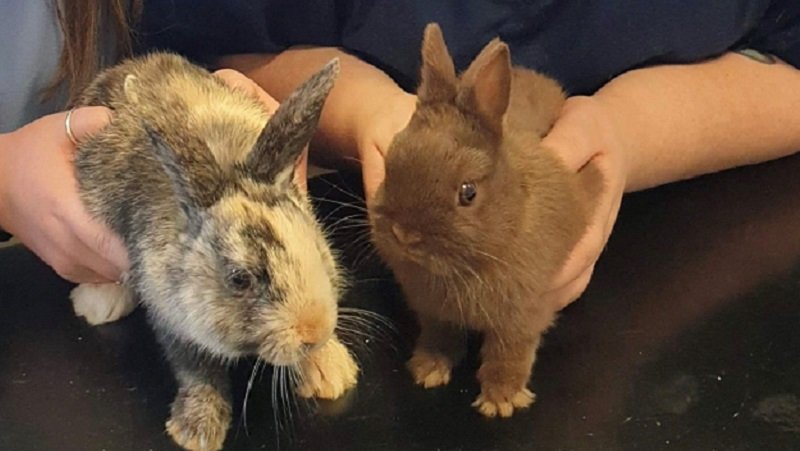Getting to grips with rabbit’s teeth
Dental care is an essential part of our daily lives – but while we are all used to brushing and flossing our own pearly whites, tooth care for our bunnies needs special consideration.
PDSA Vet Nurse Nina Downing said: “Good dental care is essential for all pets, but rabbits need special attention.
Our bouncing bunnies can be prone to painful dental issues, sadly made worse in many cases by selective breeding and not feeding enough hay.

Healthy diet
“Rabbits need hay – it is the most important part of their diet. Not only is it well-balanced and full of fibre, it’s really important for keeping your rabbits’ teeth healthy – a poor diet can contribute to dental disease in bunnies.
Unlike human teeth, theirs grow constantly throughout their life, so they need to spend a lot of time nibbling and chewing to wear them down.
If your rabbits’ teeth don’t get constant wear through grazing, they’ll start to overgrow.
Tooth roots can grow back into the jaw and skull and the teeth can grow agonising jagged spurs that cut into their mouth and tongue.
“So it’s vital you keep your rabbit supplied with plenty of good quality feeding hay.
You can also give them fresh vegetables such as cabbage, broccoli and bell peppers, along with just one tablespoon of rabbit nuggets per day, two if they’re a large breed.
Choose a good quality complete rabbit nugget to supplement their daily intake of hay, to make sure they’re getting all the nutrients they need.
Regular dental checks
“It’s not always easy to examine your rabbits’ mouths – in most cases, we can only see their front teeth.

If they are overgrown or growing in a strange direction, it’s likely that the teeth further back are also growing oddly and will be causing problems and pain.
“Have your rabbits’ teeth routinely checked by your vet a few times a year.
They’ll use a special instrument to take a close look at your furry friends’ back teeth, check their mouths for any ulcers or lumps and assess whether their teeth may be overgrowing teeth at home
Spotting signs of dental disease
“Rabbits instinctively hide pain and discomfort, so unfortunately dental disease can often go unnoticed for a long time.
Early warning signs that your bunny may be suffering include dropping food while they’re eating, drooling or being wet around the mouth.
You may also notice weight loss, teeth grinding, a bumpy jawline, reduced appetite, diarrhoea, a change in behaviour or a build-up of caecotrophs (sticky poos) around their bottom.
Grooming can become difficult for rabbits with dental problems, so they may appear scruffier.
Book an appointment with your vet straight away, so they can get help quickly.
Sadly, certain breeds of rabbits can be more prone to problems.
Those that have been bred to have a flatter face shape with a shorter nose and jaw have less space in the mouth, so the teeth become misaligned, preventing them from being worn down when chewing.
These rabbits often need regular visits to the vet.”
